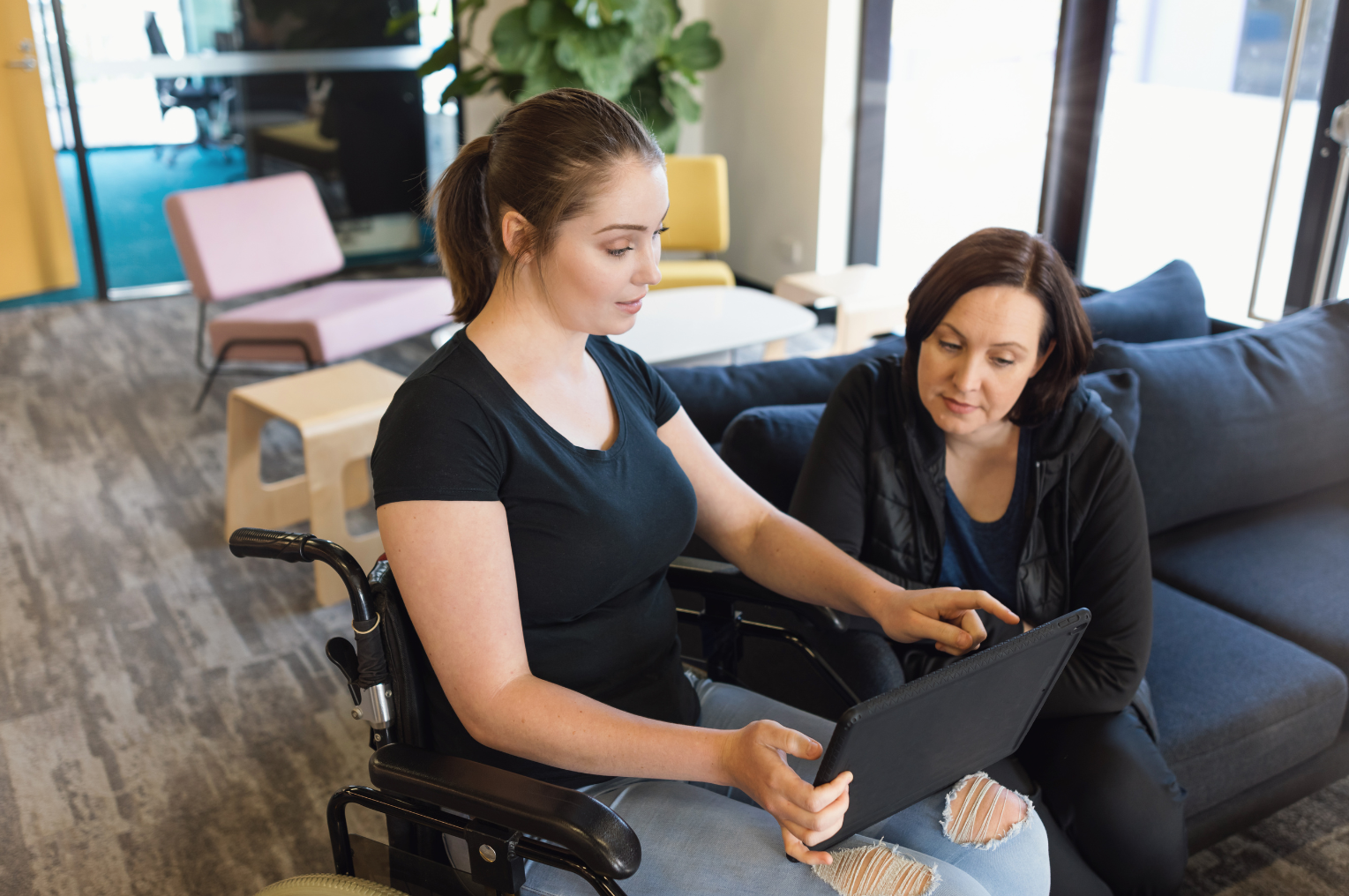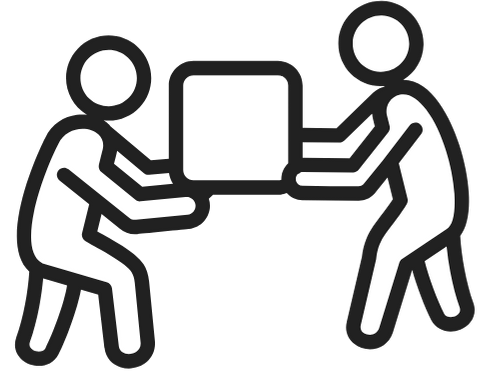Person Centered Home & Day Service Consultation
Person-Centered Consultation for Homes & Day Programs
Building Capacity, Connection, and Collaborative Care Practices
At Le Tusa, we understand that support happens in relationships — between people, environments, and systems that are always evolving.
Our Person-Centered Consultation helps homes and day programs move beyond compliance into cultures of connection, reflection, and shared growth.
Rooted in disability-affirming, trauma-informed, and relationship-centered care, our model integrates the structure of behavioral science with the science of relationships — recognizing that learning, healing, and behavior change are all shaped through connection, safety, and co-regulation.
The Collaborative Care Model
A Contemporary Integration of Behavioral Science, Relationship-Centered Practice, and Clinical Judgment
The Collaborative Care Model reflects Le Tusa’s belief that effective support is both compassionate and evidence-informed — integrating behavioral science, relationship science, trauma informed, and ethical collaboration across all levels of care.
It integrates principles from behavioral science, attachment theory, and trauma-informed care, while grounding every decision in a person’s rights, voice, and safety.
This model recognizes that no single method fits every situation.
It equips teams with the discernment skills to know when and how to draw from multiple approaches — including Applied Behavior Analysis (ABA) strategies, relational attunement, or trauma-responsive stabilization — based on each individual’s needs, context, and developmental capacity.
The core foundation of Le Tusa’s Collaborative Care Model is built on these principles:
Flexibility shows competence.
Teams are encouraged to pivot, reflect, and seek consultation rather than rely on control.
Collaboration is essential.
Complex cases require teamwork among clinicians, BCBAs, direct-support staff, and leadership.
Collaborative Care Model
All people have rights.
Dignity, autonomy, and informed choice guide all interventions.
Safety and healing are relational.
Regulation and recovery occur in safe, attuned relationships.
Accountability and supervision matter.
Ongoing feedback, follow-through, and reflective oversight sustain ethical and effective practice.
Le Tusa helps teams learn to:
Prioritize safety — physical, emotional, and relational — as a shared responsibility, never the burden of one person.
Identify when a relational or sensory-based approach better supports regulation, trust, or emotional recovery.
Assess mental-health complexity and co-occurring conditions through collaboration across disciplines.
Practice discernment as an ethical and clinical skill through reflective practice and coaching.
Strengthen their ability to balance behavior with emotional understanding, creating stability through connection and consistency.
Integration of Behavioral and Relational Science
Rather than choosing between models, Le Tusa helps teams weave them together:
This approach allows for behavioral clarity without rigidity, clinical safety without control, and relationship-centered support without loss of structure — creating systems that are ethical, compassionate, and sustainable.
Who is Consultation For?
This consultation is designed for providers and teams who want to bring depth, reflection, and alignment into their daily practice.
Ideal for:
Residential Service Providers - Level 3-6 homes — seeking guidance in reflective, compliant, and relational practice.
Day Programs building capacity for autonomy-driven, person-centered engagement.
Provider agencies preparing for DDS Quality Assurance and HCBS audits while keeping rights and relationships at the center.
Teams and leaders who want to reduce burnout through co-regulation, empathy, and shared accountability.
Core Service Areas
-
Individualized and team-based guidance focused on understanding communication, regulation, and connection.
-
Support in developing and implementing ISPs that reflect each person’s goals, preferences, and rights, ensuring they are meaningful, strengths-based, and person-directed.
-
Creation or revision of individualized plans consistent with DDS Behavioral Services Standards.
Plans integrate evidence-based behavioral strategies with trauma-informed, relationship-centered practice to understand the function and meaning of behavior and to promote safety and growth.
-
Guidance reviewing plans, staff practices, and documentation for DDS and HCBS compliance, emphasizing rights, autonomy, and relational integrity.
-
Alignment of policies, environments, and documentation with HCBS Final Rule principles — autonomy, inclusion, and informed choice.
-
Interactive sessions for team learning, co-regulation, and reflective practice — including repetition, accountability, and collective care.
-
Specialized consultation and training to help staff model and support healthy, consent-based relationships across all settings.
-
Assessment and redesign of daily routines, physical environments, and communication systems to foster trauma-sensitive, rights-affirming care.
-
Accessible handouts, visuals, digital toolkits, and printable learning materials for diverse communicators, staff, and families — including digital workshops for continued learning.
-
Structured follow-up and collaborative reflection that sustain skill use and consistency across people and settings.
Rates & Service Models
Typical Hourly Rate: $120 - $150/hour
Rates vary depending on the number of homes, staff, or systems included in the consultation.
Each project begins with an individualized plan designed to meet your team’s needs and compliance requirements.
Available in-person, virtual, and hybrid to meeting all hour needs required for the level of service provided.
To receive a customized estimate and explore collaboration,
complete the short Interest Form below.

Ready to Begin?
Whether you’re reimagining behavior support, preparing for HCBS compliance, or building a more connected home culture…
Le Tusa can help.
Complete this interest form and Le Tusa will be in touch to schedule a discovery call to explore how the Collaborative Care Model can support your team and strengthen your community.











